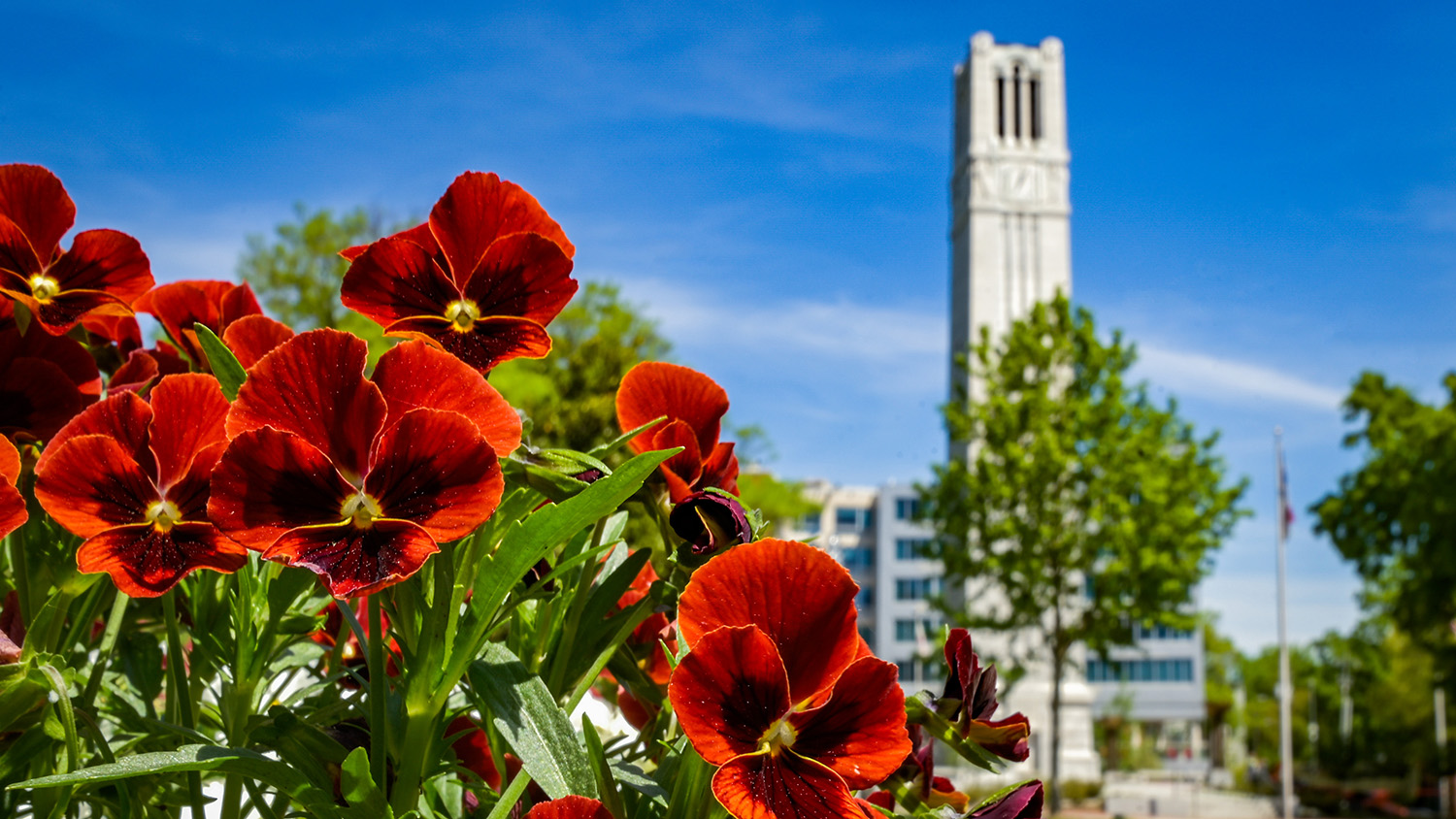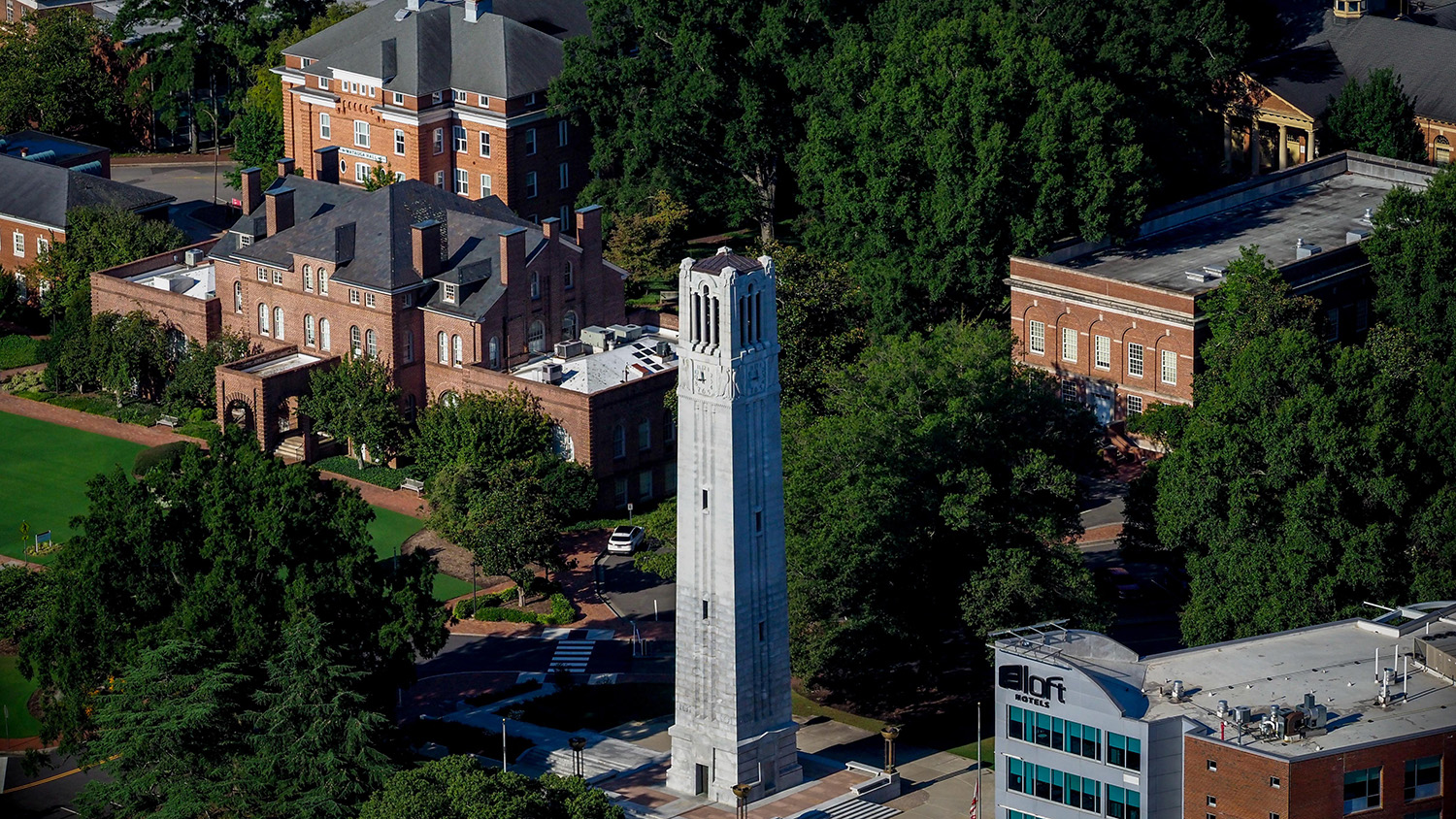Back to the Pack
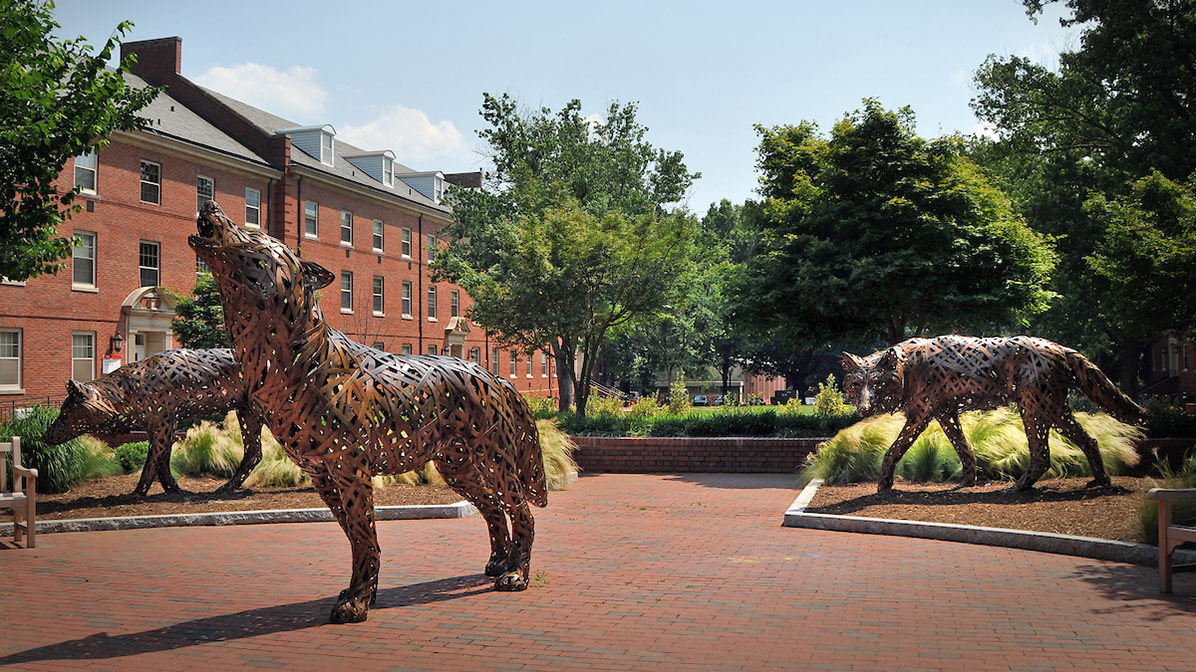
NC State holds a special place in the hearts of more than 242,000 alumni around the world. Many alumni, however, still call the campus home, although in a different way than in their student years.
Former Caldwell Fellows, Goodnight Scholars and Park Scholars serve the university in a variety of faculty and staff positions. They helped create a culture of academic excellence during their undergraduate or graduate years, and now achieve NC State’s mission and vision through, teaching, research, community engagement and more.
We spoke with these former students who returned to campus as a faculty or staff member on their undergraduate years, their current positions, and why they love NC State.
Caldwell Fellows
David Hill, AIA (BEDA, 1996; B.Arch, 1997)
Head, School of Architecture, Professor of Architecture, Co-Director, Coastal Dynamics Design Lab
School of Architecture, College of Design
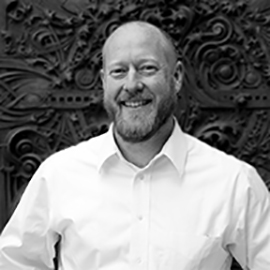 Think back to your time as an undergraduate…
Think back to your time as an undergraduate…
- Why did you choose NC State?
I chose NC State because I wanted to be an architect, and the School (now College) of Design had a great reputation. - How did the Caldwell Fellows program shape your academic and overall experience as an undergraduate?
I received a lot of great advice from Dr. Gerald Hawkins and Pat Lee in the Caldwell Fellows program. I had interviewed at other colleges, but these two people (and many others) made NC State feel like home. They were genuinely interested in me, and it was apparent that they cared for students. The Caldwell Scholarship gave me the opportunity to meet exceptional students in other majors, and I was always impressed by their intellect and creativity. The scholarship also provided me an opportunity to travel to Europe after my sophomore year. I studied art history at the Ashmolean Museum in Oxford, England and traveled to France to see many of the buildings that I had learned about in my architecture courses. - What was your most influential/favorite experience as an undergraduate?
Probably the most repetitive experience: going to my architecture design studio everyday to work on my projects. The studio was a creative mess with a lot of characters (classmates). It is no different today. I met many lifelong friends there who still influence me. Studio life can be intense with unreasonable deadlines and late nights, but there is so much camaraderie, so many jokes and pranks, so many good times. I also loved intramural sports — flag football, in particular. I played basketball on some pretty bad teams, and football and softball on some pretty decent teams. Intramural sports were one of the only things that got me out of studio.
- What was the biggest challenge you faced as a student? Did your involvement in Caldwell Fellows program play a role in overcoming that?
In spite of loving architecture, I remember having second thoughts about my major during my sophomore year. I am sure that this kind of doubt is common among students, but I had wanted to be an architect since a fairly young age, so this caused a fair amount of angst for me. I remember seeking Dr. Hawkins’ advice, and he set up interviews for me with professors in other departments on campus. I met some wonderful professors in these other departments, but most of my conversations convinced that the School (then Department) of Architecture was where I belonged. - What role do scholarship programs play in student success and NC State’s overall excellence?
Scholarship programs are critical to recognizing and recruiting the best students. We place a lot of demands on students, and scholarships ease financial the burden of college. Programs like the Park Scholars and Caldwell Fellows open up new worlds for students and expose them to new ideas. NC State is fortunate to have these major scholarship programs.
Now think about your current position at NC State…
- Why did you choose to return to NC State?
As they were when I was a student, NC State and the College of Design are home for me. When I was offered a teaching position in 2007, I was excited — and a little intimidated — to be on the faculty with professors who taught me as an undergraduate. I respect and admire them for the care that they have for students and the passion that they have for architecture and good design. The College of Design is a close-knit community with students and faculty who are pushing the limits of design. For someone who loves architecture and teaching architecture, this is a great place to be. - What is your role now, and how did your experience as a Caldwell Fellow shape what you do?
I am a Professor of Architecture and Head of the School of Architecture. The Caldwell Scholarship afforded me the opportunity to travel and to see some of the world’s great architecture. This has had a profound effect on my career, first as a practicing architect, and now as a professor. - What is your favorite part of your job?
The best part of my job has always been seeing student design work as it develops throughout the semester and in final reviews. It is exhilarating to walk into a room and see a dozen projects hanging on the walls. The students are remarkably creative, and it is gratifying to see them develop into thoughtful and sophisticated designers. - How has the campus changed since you were a student?
The physical environment is so much better! We have a lot of new buildings and outdoor spaces on campus that make it a great place. Hunt Library and the Talley Student Union have transformed the campus. The courtyards around the College of Design and North Campus are wonderful — especially in the spring when the azaleas and dogwoods bloom.
Lauren Welch (B.S. Chemistry/B.A. Interdisciplinary Studies, 2004; M.Ed. Higher Education Administration, 2007)
Director, Central Major Gifts for Virginia; Maryland; Washington, DC
University Advancement
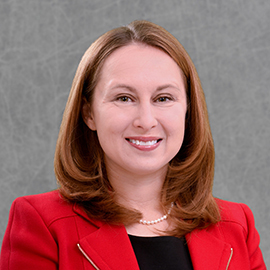 Think back to your time as an undergraduate…
Think back to your time as an undergraduate…
- Why did you choose NC State?
I chose to study at NC State because of the Caldwell Fellows scholarship. I was blown away by the inspiring, talented alumni I’d met during interview weekend and the enrichment opportunities the program offered. When the award letter came in the mail, I knew this was too good of an opportunity to turn down! - How did the Caldwell Fellows program shape your academic and overall experience as an undergraduate?
The Caldwell Fellows program opened up a whole world of opportunities for me that I never would have dreamed of, coming from a relatively small high school. And most importantly, I also joined an incredible community of Caldwell Fellows staff, students and mentors I keep in touch with to this day. - What was your most influential/favorite experience as an undergraduate?
With my summer stipends, I studied abroad in Oxford and with the Four Worlds program (Nepal, Turkey, Austria and Guatemala). These experiences taught me how important it is for students to get out of their comfort zones and view the world through different perspectives. Studying abroad also gave me the courage to pursue a Fulbright scholarship and live abroad for more than a decade. While overseas, I had the opportunity to work for the British Fulbright office and helped launch a program for talented, underprivileged students. Since its inception, nearly 1,000 high school students have visited the U.S. for the first time and more than 250 chose to come to the U.S. for college and were awarded over $70 million in scholarships.I also participated in the Wilderness Trip. I had never even camped in my own backyard before, so the trip really pushed me to (and beyond?) my physical and mental limits. Hiking and backcountry camping for more than a week in the Sierra Nevada Mountains taught me a lot about teamwork and how I could overcome obstacles (the main one being my height of 5 feet tall versus the 14,000 foot mountain before us!) It also instilled in me a passion for the outdoors and protecting the environment.
- What was the biggest challenge you faced as a student? Did your involvement in Caldwell Fellows program play a role in overcoming that?
One of my biggest challenges as a student was choosing a career path. Through a Caldwell Fellows alumni, Dr. Gerald Hawkins helped set up an internship at the Centers for Disease Control researching alternative therapies for multi-drug resistant tuberculosis. I loved that this work was tackling the global challenge of antimicrobial resistance, but I realized my strengths were suited toward a more public-facing career. In fact, it was through volunteering with SATELLITE and working in the Caldwell Fellows office for Dr. Hawkins that I decided to pursue a career in higher education. - What role do scholarship programs play in student success and NC State’s overall excellence?
Scholarships attract talented students to NC State and help them reach their full potential. As a land-grant university, it is important to our mission that we continue to open up the doors of higher education to the best and brightest students, regardless of their background and ability to pay tuition.
Now think about your current position at NC State…
- Why did you choose to return to NC State?
After graduation, I was fortunate enough to receive a Fulbright scholarship and later had the chance to move to London to work for the Fulbright program there. After 10 wonderful years in England, I moved back to Raleigh this month to be closer to family, including my sister who is a Park/Caldwell alumna and new niece who we hope will be a future member of the Wolfpack family. - What is your role now, and how did your experience as a Caldwell Fellow shape what you do? What is your favorite part of your job?
I work as Director of Development. In this role, I have the pleasure of meeting Caldwell Fellows alumni and members of the Wolfpack family who share my passion for NC State. It is very rewarding to help alumni volunteer and give back to the areas of NC State they care about most. - How has the campus changed since you were a student?
NC State has changed a lot since I was a student – our national ranking is rising, Centennial Campus is buzzing and full of new buildings, and our football and basketball teams are doing well too!
Goodnight Scholars
Devan Pendry-Schreiber (B.S. Animal Science, 2014)
Dairy Herd Manager, Dairy and Process Applications
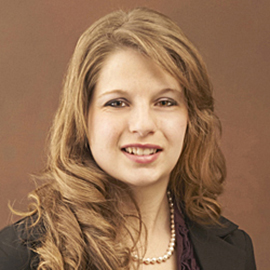 Think back to your time as an undergraduate…
Think back to your time as an undergraduate…
- Why did you choose NC State?
I knew that I wanted to pursue an animal science degree, and NC State has a great program. I was always a Wolfpack fan, so the choice was easy for me! - How did the Goodnight Scholars program shape your academic and overall experience as an undergraduate?
The gift of the Goodnight Scholarship relieved a huge financial burden for myself and my family. I was able to focus more on my studies and extracurricular activities rather than stress out over working to pay for college. I was able to find employment relevant to my field of interest so that I could gain more experience in the dairy industry, and I was able to work a comfortable amount of hours that I could balance with my course load. - What was your most influential/favorite experience as an undergraduate?
I really enjoyed participating in Animal Science Club. It opened many doors for me and provided great networking opportunities. I also learned just as much by participating in hands-on club activities as I did in my classes. - What was the biggest challenge you faced as a student? Did your involvement in the Goodnight Scholars program play a role in overcoming that?
I really can’t think of any major challenges! I absolutely loved my college career! - What role do scholarship programs play in student success and NC State’s overall excellence?
Beyond helping students overcome the financial burden of attending college, scholarship programs offer students a community to be a part of. Students form friendships with each other, help fellow scholars study and navigate through college, offer advice and support, etc. Some students get lost at such a large university. They may not know anybody when they move to Raleigh freshman year. Having a community to be a part of helps students integrate into university life and meet other students.
Now think about your current position at NC State…
- Why did you choose to return to NC State?
I wasn’t ready to leave Raleigh and NC State when graduation came. As soon as I had the opportunity to come back, I did! - What is your role now, and how did your experience as a Park Scholar shape what you do?
My official title is research specialist, but my working title is herd manager. I manage the dairy herd for NC State’s Dairy Farm. - What is your favorite part of your job?
My favorite part of my job is raising calves to reach their full genetic potential and utilizing genomics to improve the herd as a whole. I love working with girls (cows and heifers) every day. Big things are happening at NC State’s Dairy Farm, and I’m so excited to be a part of it’s journey! - How has the campus changed since you were a student?
I don’t see main campus often since I work on Lake Wheeler road. The new Talley Student Union was still under construction when I graduated. Harrelson Hall was also still standing. The old IHOP on Hillsborough Street was still operating, and I hear that there is now a Target on Hillsborough Street. I’m sure it looks very different! - Is there anything else that you would like to share?
Be sure to consume three serving of dairy per day for a well-balanced diet!
Park Scholars
Mary Elting (B.S., Physics, 2006)
Assistant Professor
Department of Physics, College of Sciences
Chancellor’s Faculty Excellence Program – Modeling the Living Embryo
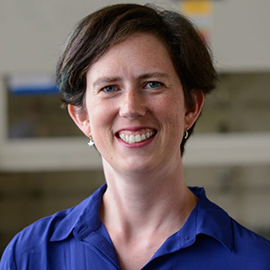 Think back to your time as an undergraduate…
Think back to your time as an undergraduate…
- Why did you choose NC State?
I think the main reasons I chose NC State were because of the strong support for undergraduate research, and because of the opportunity to be part of the Park Scholars program. Both of those turned out to be great reasons to support my decision! - How did the Park Scholars program shape your academic and overall experience as an undergraduate?
I think the Park Scholars program shaped me in two main ways. First, by creating a community of scholars that I was both personally and intellectually engaged with. A few of those folks have become lifelong friends — they are still the people with whom I want to talk about my hopes and dreams, for myself and for the wider world. Second, mentorship was an important factor. The Park program helped me build mentoring relationships that, again, I still have to do this day, and to learn how to seek out those kinds of relationships, a skill that continued to be very important throughout my scientific career. - What was your most influential/favorite experience as an undergraduate?
My involvement in research from the summer before my first semester at NC State probably had the most influence on my future career as any experience I had as an undergraduate. I discovered a field I love — single molecule biophysics — that I ending up pursuing as a Ph.D. student. I also learned early on what it means to do research — you have to get used to lots of day-to-day slog and even failure because research is about figuring out how to do something no one knows how to do yet! But I also learned I love the experience pushing the boundaries of knowledge out just a little bit farther from where they were before. - What was the biggest challenge you faced as a student? Did your involvement in the Park Scholars program play a role in overcoming that?
Looking back, I was lucky to have had an unusually privileged time as a student. I felt very supported as I learned to navigate challenging classes, balance the workload of college, make a plan for what I would do after graduation, etc., and having that support meant I didn’t have to fight to be heard. My involvement in the Park Scholars program was definitely a component of the supportive environment I experienced. As a faculty member now, I hope to bring that kind of support to as many students as possible. - What role do scholarship programs play in student success and NC State’s overall excellence?
On a personal level, the skills I learned as a Park Scholar definitely had a strong positive influence on my own career. As for NC State as a whole — I think the Park Scholar program helps to recruit strong students and, importantly, students who have aptitude for leadership in a variety of fields, which means they will help to shape the direction our university takes. Some of my fellow Park Scholars started programs as students (e.g., Service Raleigh, the Krispy Kreme Challenge) that continue to influence our campus today, and as a faculty member, I continue to be impressed with the current Park Scholars I meet and how they’re shaping their corners of the university, whether academically or through their service activities.
Now think about your current position at NC State…
- Why did you choose to return to NC State?
I loved my time as an undergrad in the NC State Department of Physics and have always hoped I might one day be able to return to serve on the faculty here. The physics department here is particularly collegial and collaborative, features that I appreciated as a student and now as a faculty member. In addition, I love Raleigh and, while I enjoyed spending a decade in California in the Bay Area, I think North Carolina will always feel like home for me. - What is your role now, and how did your experience as a Park Scholar shape what you do?
I’m an assistant professor in the Department of Physics, which means I spend about half of my time teaching physics classes and the other half doing in research, in my case in cellular biophysics. Being a Park Scholar shaped my career in a lot of ways. It encouraged me to think about my life with a long term and broad perspective, and about how my career choices can have an impact in the world. The values of “scholarship, leadership, service, and character” of the Park Scholars program stuck with me – one of the reasons I chose cellular biophysics as a subfield is that, even as a basic scientist, I wanted to feel connected to potential advances in human health. I’m also particularly enthusiastic about involving undergraduates in research, in part because of the way Park Scholars supported my undergraduate research experience — and I am excited that the first person to join my lab is a first-year Park Scholar herself! - What is your favorite part of your job?
My favorite part of my job is working with students in the lab. Our experiments involve imaging live biological samples in a microscope and perturbing them physically by shooting them with lasers — I don’t think I’ll ever get over how fun and exciting this is! I love teaching these techniques to students who are new to biophysics and haven’t gotten to experience them before. The other thing I love about working with students is that they ask such interesting questions. Often someone who is new to a problem actually has particularly important insights because they bring a fresh perspective. - How has the campus changed since you were a student?
I love how many of my favorite places on campus – the “Wolf Ears” near the brickyard (my favorite place to study!), the Free Expression tunnel, and Gardner Arboretum, for example, are still just like I remember them. Of the places I regularly go on campus, I think D.H. Hill Library and the Talley Student Union are the most changed — both have had fantastic updates since I was last here.
- Categories:
